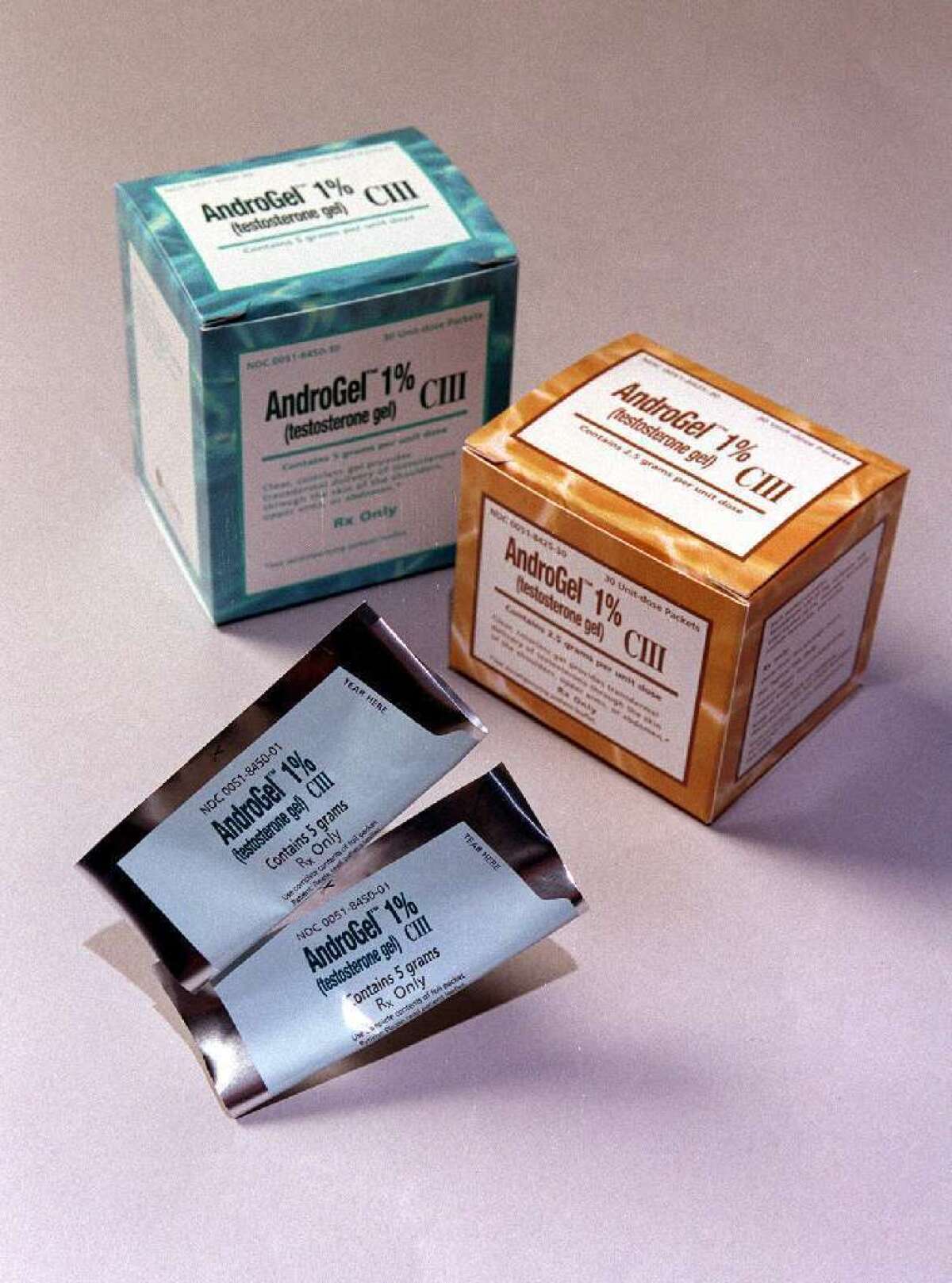For men on testosterone therapy, some good news and bad

Testosterone therapy, taken by about 3% of men over 40 in the U.S., has been linked to heart attack and stroke.
New research offers both reassurance and disappointing news to men who take testosterone supplements to improve their energy levels, libido and general health: The popular therapy does not appear to hasten progression of cardiovascular disease; neither, however, does it appear to improve sexual function or overall health-related quality of life.
The new trial results counter the findings of a welter of recent studies that has linked testosterone supplementation to an increased risk of heart attacks and strokes.
At the same time, they suggest that the roughly 3% of American men over 40 taking prescription testosterone supplements may be getting little benefit for the $1.6 billion spent annually on those treatments. Over the studyâs three-year span, men taking testosterone reported no greater sense of well-being, nor better erectile or ejaculatory function, sexual desire or partner intimacy, than did those getting a placebo.
Reported Tuesday in JAMA, the clinical trial looked for changes in two measures of cardiovascular disease risk - coronary artery calcium levels and narrowing of the carotid artery that supplies oxygenated blood to the brain. Over three years, researchers at three centers in the U.S. made those measurements in men 60 years or older taking testosterone and a similar group of men who received packets of placebo gel.
All the men had low- or low-normal testosterone levels. For those taking the real thing, the study investigators sought to establish and maintain levels of circulating testosterone to those typical of young men.
The impact of testosterone supplementation on cardiovascular risk in older men has been the subject of much research, and conclusions have been contradictory. Some research has suggested that men with low testosterone levels are more likely to have heart attacks and strokes.
But a number of new studies have suggested an opposite effect. A 2010 clinical trial found such a sufficiently heightened risk of heart attacks and strokes among men taking testosterone that the trial was stopped.
A 2014 study published in JAMA said that men who underwent an artery-clearing procedure and then took testosterone had a 30% greater likelihood of heart attack, stroke or death from any cause than did similar men who did not take testosterone.
Such findings prompted the Food and Drug Administration in March of this year to order the makers of testosterone replacement products to bear a warning that there is a âpossible increased risk of heart attack and strokesâ in patients taking the medications.
With more than 1.5 million American men taking prescription testosterone and an aggressive marketing campaign causing use of such products to surge, the safety of the hormone supplement has become a public health concern.
The TEAAM study (short for Testosteronesâ Effect on Atherosclerosis Progression in Aging Men) aims to clarify not only whether testosterone supplementation increases cardiovascular risk, but how. The results reported in JAMA Tuesday only begin to offer clues.
The studyâs finding - that over three years, testosterone use neither increases coronary artery calcium nor narrows the carotid artery - suggests two possibilities.
One is that the increased heart attack and stroke risk seen in testosterone users in other studies was a fluke, or attributable to unseen factors. The other is that that increased risk with testosterone is real, but that the hormone works in some other fashion to catalyze heart attack or stroke.
The authors of the current study note that, in earlier studies, an increase in heart attacks and strokes appeared greatest in men who had just begun testosterone therapy. This observation, in conjunction with the latest findings, suggests that testosterone therapy may increase heart attack or stroke risk by other means - say, by loosening arterial plaques, prompting the formation of blood clots, boosting inflammation, or altering a patientâs retention of salt and water.
Follow me on Twitter @LATMelissaHealy and âlikeâ Los Angeles Times Science & Health on Facebook.




